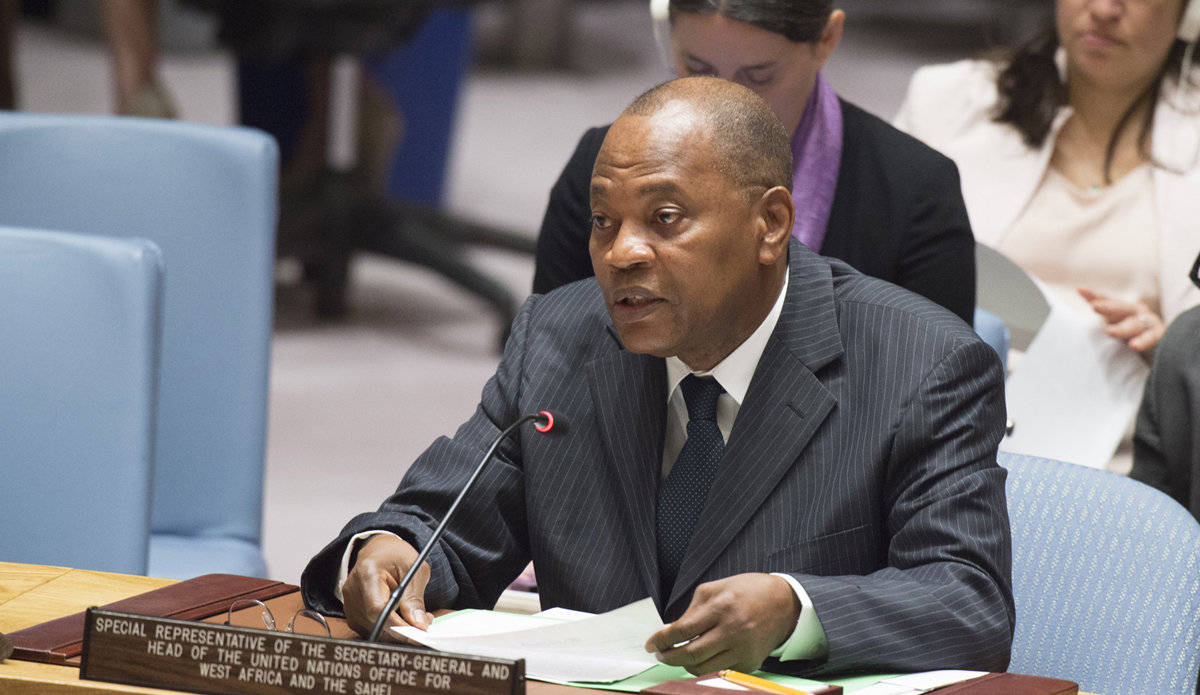”Traditional and new drivers of insecurity are hampering efforts for developpement in West Africa and the Sahel”
West Africa and the Sahel have recently witnessed positive progress in democratic consolidation. However the security situation remains of a great concern. It was in substance the message of the Special Representative and Head of the United Nations Office for West Africa and the Sahel, Mohamed Ibn Chambas during his briefing to the UN Security Council on Thursday 13 July.
Efforts by member states in the region to deliver on development, improve infrastructure, create jobs and strengthen human security are being hampered by traditional and new drivers of conflict and insecurity.
Mohamed Ibn Chambas told the U.N. Security Council that "efforts by member states in the region to deliver on development, improve infrastructure, create jobs and strengthen human security are being hampered by traditional and new drivers of conflict and insecurity."
Traditional and new drivers of conflict and insecurity are hampering the capacity of countries to improve life conditions and strengthen human security, said Ibn Chambas, adding that clashes between farmers and herders are another threat that, if they are not contained, they have the potential to undermine peace and stability across the region.
The Special Representative expressed concerns about the ongoing instability in Mali which is spilling over into Burkina Faso and Niger while insecurity in the Lake Chad basin, where Boko Haram remains active, is proving equally challenging.
In the Lake Chad basin, which spans parts of seven countries, "an equally challenging pole of insecurity remains" despite a multinational task force's efforts that "have substantially degraded Boko Haram's capabilities, shrunk its geographical reach, and freed thousands of captives," he stressed.
Up to 5.2 million people displaced across the Lake Chad basin "struggling for their very subsistence."
"The failure to provide basic services and viable livelihood opportunities for communities in affected areas risks derailing recent successes against Boko Haram," Ibn Chambas warned the Security Coucil memebers.
In the Sahel, the Liptako Gourma region linking Mali with Burkina Faso and Niger "has seen a significant expansion of violent extremist and terrorist activities in the past months, including coordinated cross-border attacks against security posts and ransacking of border settlements.", he said
Terrorism and violent extremism, in addition to the humanitarian crisis and threats to state integrity that they generate, have exacerbated traditional threats.
Ibn Chambas said violent extremist groups targeted Burkina Faso's northern provinces of Soum, Loroum and Yatenga and Niger's western regions of Tillaberi and Tahoua, which has had "detrimental effects on the local economy."
"Terrorism and violent extremism, in addition to the humanitarian crisis and threats to state integrity that they generate, have exacerbated traditional threats," he said.
Ibn Chambas underlined that these factors, along with climate change, a growing youth population and lack of jobs, and unchecked urbanization are pushing a surge in migration and human trafficking.
The Special Represnetative said that smugglers are crisscrossing borders and establishing new operational areas where governments have withdrawn or maintain only "a tentative presence." Insecurity and lawlessness now stretch to the Gulf of Guinea, "where criminal elements increasingly resort to piracy and hostage-taking," he added.
While it is vital to continue to tackle security threats, the international community must remain engaged to help the governments set the foundations for democratic, cohesive, and resilient societies, said Ibn Chambas.
(Download) Report of the Secretary-General on the activities of UNOWAS (S/2017/563) - June 2017
 UN
UN


